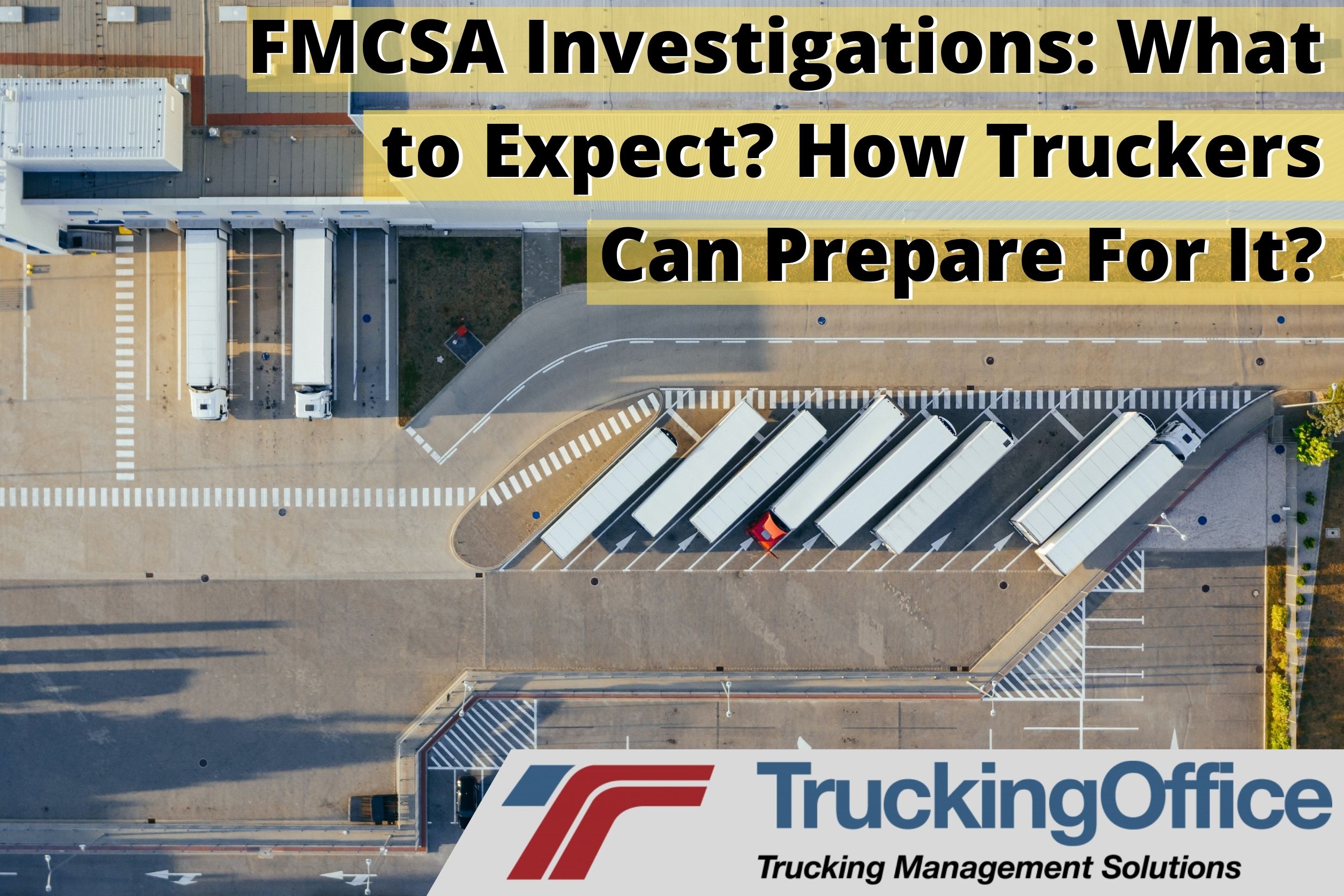The Federal Motor Carriers Safety Administration creates the standards to license and test commercial motor vehicle drivers. They compile data from investigations and use it to improve motor carrier safety throughout the country. Sometimes the FMCSA may conduct an audit if a driver is under review. The reasons why a driver may be under review can include an accident with injury or other traffic violations.
Learning that one of your drivers will be investigated by the FMCSA can be stressful. That’s why we’ve created this guide explaining what to expect during an FMCSA audit and how to prepare.
What to Expect During the Investigation
During a basic FMCSA investigation, you can expect the following things to happen:
The FMCSA representative will interview key personnel from your company. That will help them understand the fleet’s operations and how you book and plan to dispatch and oversee the freight’s movement. They may also request to speak with your accounts receivable and payroll department. They will also interview drivers to understand how the process works to see if all stories match up.
Then the representative will require back-office reports from your ELD system. The information gathered from these reports can include unassigned driving miles, edit reports, odometer jumps, and violation reports.
They will look over each change of duty status and check that it is the same as the ELD record. They will also look for any violations in the 11-hour, 14-hour, 60/70-hour, and 30-minute break rules. The investigators can use ERODS software that flags any possible issues instead of looking through manual logbooks.
Finally, they will check for any unassigned driving miles and ask for explanations if none are found. They will evaluate the edit report and investigate all ELD records, checking for any malfunctions with the system.
Keep in mind there are many different types of ELDS out there, and the FMCSA investigator conducting the audit may not be familiar with your particular type. If that is the case, they will rely on the company to educate them on using it.
What Happens If Your Trucking Company Fails an FMCSA Investigation?
Did you receive notification of violation (NOV) that your company failed an FMCSA safety audit? If so, what happens next? First, the FMCSA expects you to explain the steps you’ll take to address any violations identified in the notification. This is known as a corrective action plan or CAP. Failure to submit your CAP in the allotted time can result in revocation of your FMCSA registration.
Next, you must provide proof that you have taken steps to resolve the issues. If the safety or compliance violations are not corrected according to FMCSA regulations, you’ll receive an out-of-service order. Also, you could face further intervention. Severe violations can result in civil penalties that include fines of up to $16,000. The maximum fine for hazardous materials violations is $75,000.
An FMCSA intervention can include the following:
- Warning letter: Identifies safety violations and explains the consequences of not addressing them.
- Investigation: includes (1) offsite review of documents to identify safety problems or (2) onsite inspections of vehicles and interviews with employees.
The best way to pass an FMCSA investigation is to be prepared. With our TruckingOffice TMS and ELD, you’ll have real-time data regarding vehicle maintenance, daily inspections, and HOS. This information helps you stay one step ahead of FMCSA inspections.
How to Prepare for an FMCSA Investigation
There are several things you should do to prepare for your upcoming FMCSA investigation. First, you will need to make sure your ELD records are easy to access and well organized. You can easily accomplish that if you use a TMS system like the one available from TruckingOffice.com.
A TMS can help you create an internal auditing system that includes hours of service and ELD records. It can help you understand what ELD system reports to use during the investigation, show login activity, and keep all client information safe and secure in one location. The TMS will also communicate with your ELD and quickly transfer all the necessary data to your web portal and law enforcement.
You may also want to get a third party to conduct a mock FMCSA investigation compliant with all FMCSA regulations and procedures. There are consulting companies available who can assist you with this process.
TruckingOffice Can Help You Avoid Audits and Stay Prepared
Having ELD logs that are accurate and easy to access is one of the best things you can do to help you and your drivers prepare for an FMCSA audit. With TruckingOffice TMS software, you and your drivers will always be for the road ahead. This transportation management system keeps all your necessary data safely in one place so you can access it at any time. Ensure you have all your logs and records available if an audit occurs using TruckingOffice’s TMS to manage your fleet.







Recent Comments